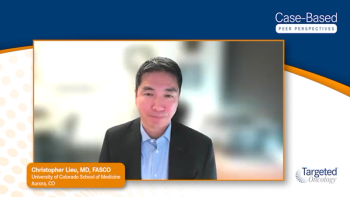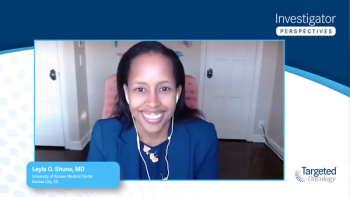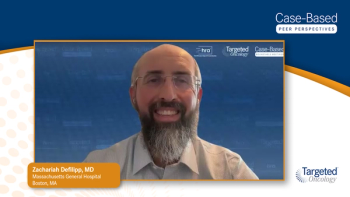
Steroid-Refractory cGVHD Care: Axatilimab in the Community Setting
A panelist discusses how community-based care coordination can be implemented for patients with chronic graft-vs-host disease (cGVHD) on axatilimab, with initial cycles administered at specialized centers followed by local infusions under community oncologist supervision, with periodic assessment visits to evaluate treatment response.
Episodes in this series

Video content above is prompted by the following:
Treatment of patients with chronic graft-vs-host disease (cGVHD) on axatilimab often involves collaboration between transplant centers and community oncologists, particularly for patients who were transplanted 2 to 3 years prior and have returned to community care. The specialist describes a comanagement approach where patients deemed appropriate candidates for axatilimab—due to failure of prior agents, predominant lung involvement, or medication nonadherence—initially receive the first few treatment cycles at the transplant center. This initial period allows monitoring for infusion reactions and assessment of enzyme elevations (alanine transaminase, aspartate transaminase, gamma-glutamyl transferase).
Once the patient demonstrates good tolerance to axatilimab with manageable enzyme elevations, subsequent treatment cycles can be administered locally by community oncologists at their infusion centers. The transplant specialist continues to monitor treatment response and perform National Institutes of Health criteria assessments approximately every couple of months, sometimes utilizing telehealth visits to facilitate ongoing specialist oversight while allowing community-based infusion administration.
This shared care model leverages the safety profile of axatilimab—a humanized monoclonal antibody—to improve patient convenience while maintaining specialized assessment of this complex disease. The approach recognizes that while response assessment requires specialist expertise, the actual administration of this relatively safe medication can be appropriately managed by community oncology colleagues in their local infusion centers, reducing travel burden for patients with cGVHD who often face mobility challenges and multiple medical appointments.



















